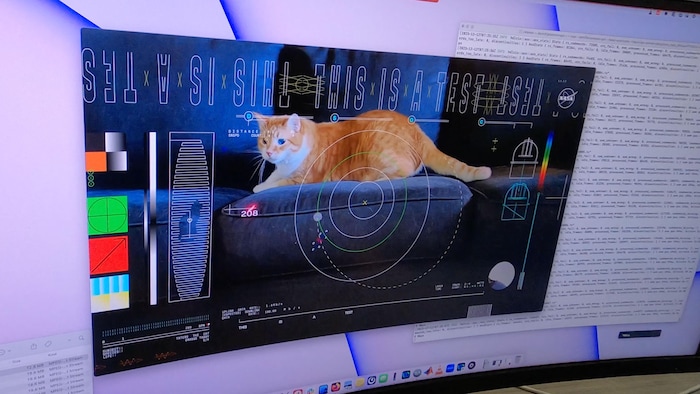Open in full screen mode A computer screen shows the Taters cat in a still image from the first high-definition video sent by laser from deep space. Agence France-Presse Speech synthesis, based on artificial intelligence, makes it possible to generate spoken text from written text. Like many Internet users, NASA seems to have succumbed to cat videos. But after making one, the American agency of course took him on a little detour through space – about 30 million kilometers away. The operation was part of a very serious test of a new cutting-edge technology: a laser communication system, promising for the future of space exploration.Start of widget. Skip widget?End widget. Return to start of widget? For the first time, NASA broadcast a continuous video from deep space using this system on December 11, it announced Monday. The star of this 15-second video: a white and orange cat named Taters, owned by one of the employees of NASA's Jet Propulsion Laboratory (JPL). Installed on a sofa, the feline tries to catch a point of light projected by… a laser. Loading ELSIDE ON INFO: Inflation stagnates at 3.1% in November in Canada The high-definition video took just 101 seconds to travel to Earth, after being sent by an instrument on NASA's PSYCHE probe, then some 30 million kilometers away . The transmission rate was no less than 267 megabits per second, more than that of a typical Internet connection. The signal was received by the Palomar Observatory in California, which transmitted it live to JPL, in the south of the same American state, where the video was played instantly. < p class="StyledBodyHtmlParagraph-sc-48221190-4 hnvfyV">After receiving it at Palomar, the video was sent to JPL via the Internet, and that connection was slower than the signal from deep space, said Ryan Rogalin, who was involved in the project at NASA. /p> Members of the PSYCHE mission react to the first high-definition video sent by laser from deep space on December 11 at NASA's Jet Propulsion Laboratory. Videos had already been transmitted using this laser technology from space, but from much closer. Space missions involve the transmission of an increasingly large volume of data as the technology they carry improves. To prepare in particular for sending manned missions to Mars, NASA is seeking to turn to laser communications systems, instead of traditional radio communications. Increasing our throughput is essential to achieving our future science and exploration goals, NASA Deputy Administrator Pam Melroy said in a statement. The space agency also declared that it was part of a certain feline tradition: in 1928, an image of the cartoon character Felix the Cat was used to create a television test. But from space, Taters will perhaps remain the highest perched cat in history.< /p>
Inflation stagnates at 3.1% in November in Canada
Cat then! NASA lasers feline video from deep space

